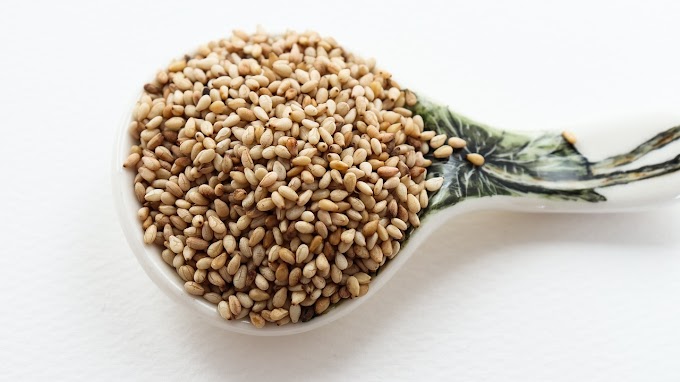How Does Ayurvedic Treatment Work?
Introduction
In a world dominated by modern medicine, the ancient healing system of Ayurveda has carved its niche as a holistic approach to health and well-being. Originating in ancient India over 5,000 years ago, Ayurveda is a system of medicine that strives to balance the body, mind, and spirit to promote overall health. In this comprehensive guide, we delve into the intricate workings of Ayurvedic treatment, exploring its fundamental principles, therapies, and the profound impact it can have on one's life.
Ayurveda's Foundation
At the heart of Ayurveda lies the concept of the doshas — three fundamental energies that govern all physiological and psychological processes within the body. These doshas, known as Vata, Pitta, and Kapha, represent a unique combination of the five elements: ether, air, fire, water, and earth. Each individual possesses a specific dosha constitution, which determines their physical and mental characteristics.
Vata Dosha: Governed by the elements of air and ether, Vata is associated with movement, creativity, and change. When in balance, Vata promotes flexibility and vitality. However, an excess of Vata can lead to conditions such as anxiety, insomnia, and digestive issues.
Pitta Dosha: Linked to the elements of fire and water, Pitta governs metabolism, digestion, and transformation. A balanced Pitta fosters intelligence and warmth, but an aggravated Pitta may manifest as irritability, inflammation, and digestive disorders.
Kapha Dosha: Rooted in the elements of water and earth, Kapha provides structure and stability. In balance, Kapha promotes strength and endurance, but an excess can lead to lethargy, weight gain, and respiratory issues.
The Essence of Ayurvedic Treatment
Ayurvedic treatment revolves around restoring harmony to the doshas, thereby promoting optimal health. Therapies are personalized based on an individual's dosha constitution and imbalances, ensuring a holistic and targeted approach to well-being.Diet and Nutrition: Ayurveda places significant emphasis on the role of diet in maintaining balance. Foods are categorized based on their impact on the doshas, and individuals are advised to consume a diet that aligns with their constitution. For instance, Vata types may benefit from warm, nourishing foods, while Pitta individuals may find relief in cooling, hydrating options.
Herbal Remedies: Ayurvedic practitioners harness the power of herbs to address specific imbalances. Common herbs like ashwagandha, turmeric, and triphala are celebrated for their healing properties. These herbs are often prepared in various forms, including powders, capsules, and teas, to support overall well-being.
Yoga and Exercise: Physical activity plays a pivotal role in Ayurvedic treatment, aiming to balance the doshas and enhance overall vitality. Tailored yoga practices and exercises are recommended based on an individual's dosha constitution. For example, Vata types may benefit from gentle, grounding exercises, while Pitta individuals may find solace in cooling, and calming practices.
Ayurvedic Massage and Therapies: Abhyanga, the practice of Ayurvedic massage, is revered for its ability to promote relaxation and balance. Herbal oils, chosen to align with an individual's dosha, are used in massage therapies to soothe the nervous system, improve circulation, and alleviate muscle tension.
Detoxification and Panchakarma: Panchakarma, a cornerstone of Ayurvedic detoxification, involves a series of cleansing procedures to eliminate toxins and restore balance. This intensive therapy includes techniques such as oil massages, herbal enemas, and therapeutic vomiting to purify the body and mind.

The Mind-Body Connection in Ayurveda
Ayurveda acknowledges the inseparable connection between the mind and body, recognizing that imbalances in one can affect the other. Mental well-being is considered a vital aspect of Ayurvedic treatment, with practices such as meditation, mindfulness, and pranayama (breath control) playing a central role.Meditation and Mindfulness: Ayurvedic practices often include meditation techniques tailored to balance specific doshas. Mindfulness meditation is embraced for its ability to cultivate awareness, reduce stress, and enhance overall mental clarity.
Pranayama: The art of conscious breathing, pranayama, is integral to Ayurveda. Specific breathing exercises are recommended to pacify or invigorate the doshas, fostering a harmonious balance between the mind and body.
The Role of Ayurvedic Practitioners
In the realm of Ayurvedic treatment, the guidance of a knowledgeable practitioner is invaluable. Ayurvedic practitioners, often called Vaidyas, assess an individual's dosha constitution, identify imbalances, and tailor treatment plans to address specific health concerns.Consultation and Diagnosis: During a consultation, Vaidya conducts a thorough examination, considering factors such as lifestyle, diet, and emotional well-being. Pulse diagnosis (Nadi Pariksha) and tongue analysis are common diagnostic tools used to assess dosha imbalances.
Personalized Treatment Plans: Based on the assessment, Vaidya develops a personalized treatment plan encompassing dietary recommendations, herbal supplements, lifestyle modifications, and therapeutic practices. This individualized approach ensures that treatment aligns with the unique needs of each person.
The Science Behind Ayurvedic Treatment
While Ayurveda is deeply rooted in ancient wisdom, modern scientific research is increasingly validating its effectiveness. Numerous studies have explored the therapeutic benefits of Ayurvedic practices and herbs, shedding light on their mechanisms of action and clinical applications.
Anti-Inflammatory Effects: Turmeric, a staple in Ayurvedic remedies, contains curcumin, a potent anti-inflammatory compound. Research indicates that curcumin may help alleviate inflammatory conditions, making it a valuable tool in managing disorders associated with excess Pitta.
Stress Reduction: Ayurvedic practices, including meditation and herbal interventions, have been linked to reduced stress levels. Studies suggest that these practices modulate the stress response, promoting a sense of calm and mental well-being.
Gut Health: Ayurveda recognizes the importance of digestive health in overall well-being. Recent research highlights the impact of Ayurvedic dietary principles and herbs on gut health, emphasizing the significance of a balanced digestive system.

Conclusion
Ayurvedic treatment stands as a testament to the enduring wisdom of ancient healing practices. By addressing the root causes of imbalances and promoting harmony within the doshas, Ayurveda offers a holistic approach to health that extends beyond symptom management. As modern science continues to unravel the intricate mechanisms behind Ayurvedic therapies, the timeless principles of this ancient system continue to guide individuals on a journey toward balance, vitality, and lasting well-being. Embracing the profound connection between mind, body, and spirit, Ayurveda beckons us to rediscover the path to optimal health through personalized, holistic care.FAQ's
Q1: What is Ayurveda, and how does it differ from conventional medicine?
A1: Ayurveda is a traditional healing system that originated in ancient India over 5,000 years ago. It differs from conventional medicine by emphasizing a holistic approach to health, addressing the balance of the doshas (Vata, Pitta, and Kapha) in the body, mind, and spirit.
Q2: How can I determine my dosha constitution?
A2: A qualified Ayurvedic practitioner, known as a Vaidya, can assess your dosha constitution through a comprehensive consultation. Pulse diagnosis (Nadi Pariksha), tongue analysis, and a detailed examination of your lifestyle, diet, and emotions are common diagnostic tools used in Ayurveda.
Q3: Can Ayurvedic treatment be integrated with modern medicine?
A3: Yes, Ayurvedic treatment can complement modern medicine. However, it is advisable to consult with both Ayurvedic and conventional healthcare practitioners to ensure a coordinated and safe approach to your health.
Q4: Are Ayurvedic treatments effective for chronic conditions?
A4: Ayurvedic treatments have shown promise in managing various chronic conditions. However, individual responses may vary. It's crucial to work closely with an Ayurvedic practitioner to develop a personalized treatment plan tailored to your specific health needs.
Q5: How long does it take to see results with Ayurvedic treatment?
A5: The timeline for experiencing results with Ayurvedic treatment varies depending on the individual's constitution, the nature of the health concern, and adherence to the prescribed therapies. Some individuals may see improvements in a few weeks, while others may require more extended periods for noticeable changes.
Q6: Can Ayurveda help with mental health issues such as anxiety and depression?
A6: Yes, Ayurveda addresses the mind-body connection, and practices like meditation, mindfulness, and specific herbal remedies are often recommended to support mental well-being. However, individuals with mental health concerns should seek guidance from qualified mental health professionals in conjunction with Ayurvedic care.
Q7: Are there any side effects associated with Ayurvedic treatments?
A7: Ayurvedic treatments are generally well-tolerated when prescribed by a qualified practitioner. However, some individuals may experience mild detoxification symptoms as the body adjusts to the therapies. It's crucial to communicate any concerns or reactions to your Ayurvedic practitioner promptly.
Q8: Can Ayurvedic treatments be followed at home, or do I need to visit a practitioner regularly?
A8: While initial consultations with an Ayurvedic practitioner are essential for personalized guidance, many Ayurvedic principles can be incorporated into daily life at home. However, regular check-ins with your practitioner may be recommended to adjust treatments and ensure ongoing well-being.
Q9: Is Ayurvedic treatment suitable for everyone?
A9: Ayurvedic treatments are generally considered safe for most individuals when administered by qualified practitioners. However, pregnant women, individuals with specific medical conditions, or those taking prescription medications should consult with both their Ayurvedic practitioner and primary healthcare provider for tailored guidance.
Q10: Can Ayurveda help with preventive healthcare?
A10: Yes, Ayurveda emphasizes preventive healthcare by promoting balance and addressing imbalances before they manifest as diseases. Following Ayurvedic principles in daily life, including diet, exercise, and stress management, can contribute to overall well-being and prevent health issues.
A1: Ayurveda is a traditional healing system that originated in ancient India over 5,000 years ago. It differs from conventional medicine by emphasizing a holistic approach to health, addressing the balance of the doshas (Vata, Pitta, and Kapha) in the body, mind, and spirit.
Q2: How can I determine my dosha constitution?
A2: A qualified Ayurvedic practitioner, known as a Vaidya, can assess your dosha constitution through a comprehensive consultation. Pulse diagnosis (Nadi Pariksha), tongue analysis, and a detailed examination of your lifestyle, diet, and emotions are common diagnostic tools used in Ayurveda.
Q3: Can Ayurvedic treatment be integrated with modern medicine?
A3: Yes, Ayurvedic treatment can complement modern medicine. However, it is advisable to consult with both Ayurvedic and conventional healthcare practitioners to ensure a coordinated and safe approach to your health.
Q4: Are Ayurvedic treatments effective for chronic conditions?
A4: Ayurvedic treatments have shown promise in managing various chronic conditions. However, individual responses may vary. It's crucial to work closely with an Ayurvedic practitioner to develop a personalized treatment plan tailored to your specific health needs.
Q5: How long does it take to see results with Ayurvedic treatment?
A5: The timeline for experiencing results with Ayurvedic treatment varies depending on the individual's constitution, the nature of the health concern, and adherence to the prescribed therapies. Some individuals may see improvements in a few weeks, while others may require more extended periods for noticeable changes.
Q6: Can Ayurveda help with mental health issues such as anxiety and depression?
A6: Yes, Ayurveda addresses the mind-body connection, and practices like meditation, mindfulness, and specific herbal remedies are often recommended to support mental well-being. However, individuals with mental health concerns should seek guidance from qualified mental health professionals in conjunction with Ayurvedic care.
Q7: Are there any side effects associated with Ayurvedic treatments?
A7: Ayurvedic treatments are generally well-tolerated when prescribed by a qualified practitioner. However, some individuals may experience mild detoxification symptoms as the body adjusts to the therapies. It's crucial to communicate any concerns or reactions to your Ayurvedic practitioner promptly.
Q8: Can Ayurvedic treatments be followed at home, or do I need to visit a practitioner regularly?
A8: While initial consultations with an Ayurvedic practitioner are essential for personalized guidance, many Ayurvedic principles can be incorporated into daily life at home. However, regular check-ins with your practitioner may be recommended to adjust treatments and ensure ongoing well-being.
Q9: Is Ayurvedic treatment suitable for everyone?
A9: Ayurvedic treatments are generally considered safe for most individuals when administered by qualified practitioners. However, pregnant women, individuals with specific medical conditions, or those taking prescription medications should consult with both their Ayurvedic practitioner and primary healthcare provider for tailored guidance.
Q10: Can Ayurveda help with preventive healthcare?
A10: Yes, Ayurveda emphasizes preventive healthcare by promoting balance and addressing imbalances before they manifest as diseases. Following Ayurvedic principles in daily life, including diet, exercise, and stress management, can contribute to overall well-being and prevent health issues.








